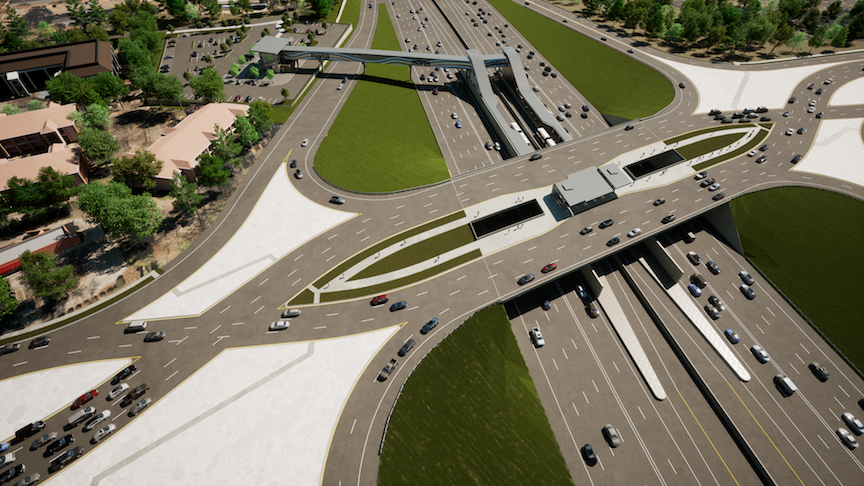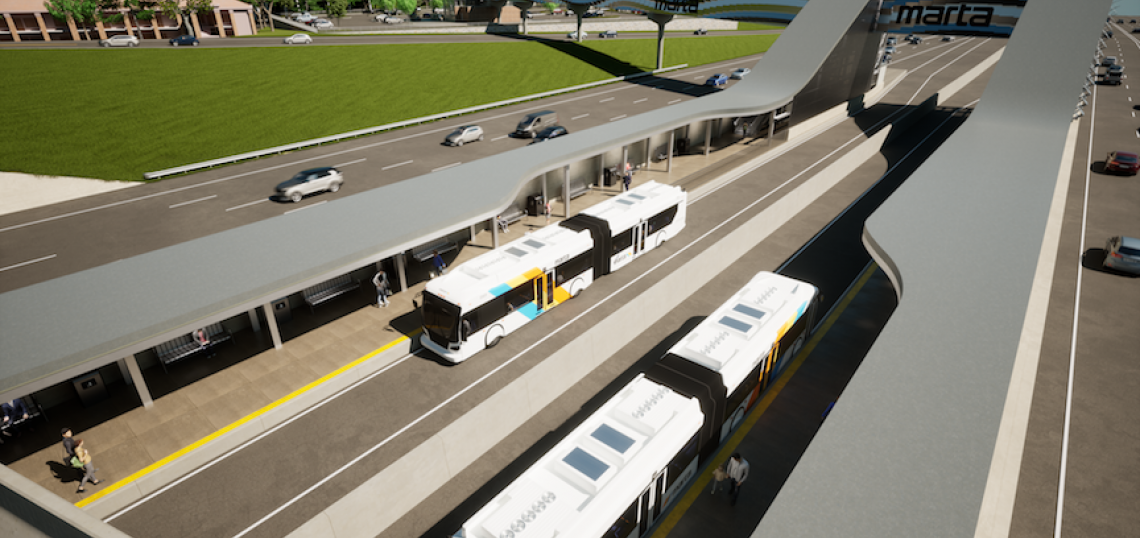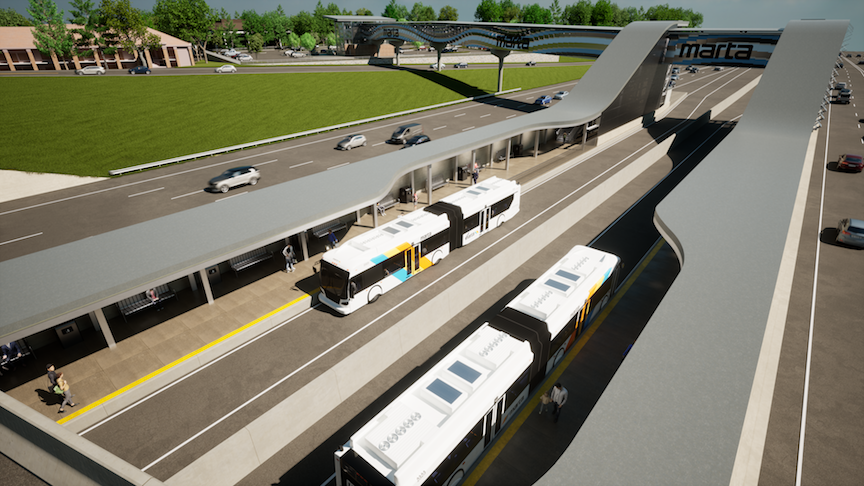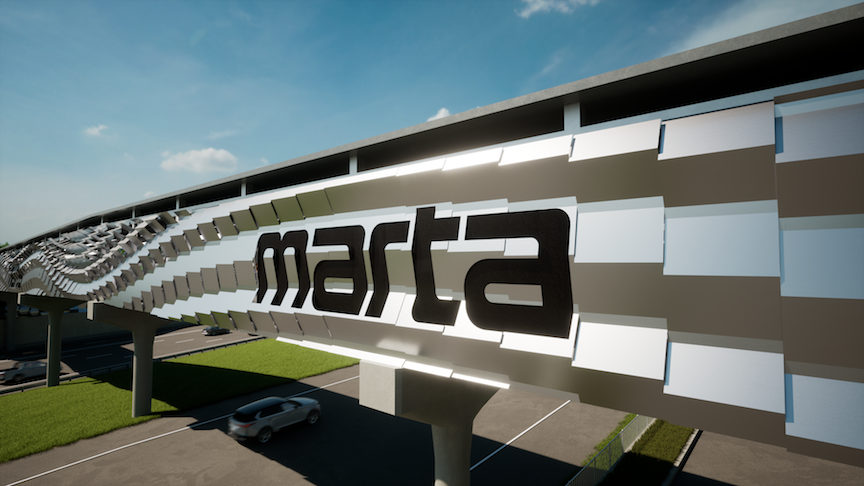MARTA leadership is applauding the state’s transportation authority for moving forward with plans to remake Ga. Highway 400 into a transit corridor, furthering MARTA’s goal of creating Bus Rapid Transit options throughout the region.
Georgia Department of Transportation officials announced today they’d taken a key step in advancing the SR400 Express Lanes Project by selecting a contractor to tackle the massive job on one of metro Atlanta’s busiest traffic corridors.
GDOT selected an LLC called SR400 Peach Partners as project contractors. That’s a consortium of several engineering and road-building companies, according to Capitol Beat News Service.
Expected to cost $4.6 billion, the Ga. Highway 400 overhaul calls for implementing about 16 miles of BRT lanes and stations, in addition to tolled express lanes for vehicles. The project would stretch from Sandy Springs up to the southern reaches of Forsyth County, with service to cities such as Roswell, Alpharetta, and Milton in between. The roadway is traveled by about 278,000 vehicles per day.
MARTA officials praised GDOT, the State Road and Tollway Authority, and the Atlanta-Region Transit Link Authority in a statement today with helping to bring transportation alternatives to the often-clogged, north-south freeway.
The project will boost connectivity to job centers, tamp down on traffic congestion, and set the stage for transit-oriented development in the future, according to MARTA. (Find a breakdown of how MARTA’s BRT stations on Ga. Highway 400 could look and function here.)
“Together we are expanding transit and supporting economic development throughout the region,” the MARTA statement reads.
 How MARTA's bus-rapid transit station on Ga. Highway 400 could be situated near a revised Holcomb Bridge Road in Roswell. Courtesy of MARTA
How MARTA's bus-rapid transit station on Ga. Highway 400 could be situated near a revised Holcomb Bridge Road in Roswell. Courtesy of MARTA
The Ga. Highway 400 project’s scope calls for two toll lanes running in each direction from MARTA’s North Springs station to McGinnis Ferry Road in Alpharetta; from there, one lane in each direction would extend to just north of McFarland Parkway in Forsyth County.
MARTA’s BRT component would operate in dedicated lanes free of other vehicles in the middle of the highway, between tolled lanes. Those would extend from North Springs station to Windward Parkway (where a park-and-ride lot would be built), with BRT stations in between near North Point Mall and at Holcomb Bridge Road. Last year, MARTA estimated its portion of the project would cost about $360 million.
GDOT’s goal is to begin construction on Ga. Highway 400 by the third quarter of 2025 and open lanes to vehicles roughly six years later. To help pay for the project, the agency plans to partner with a private company that would set tolls and collect revenue.
A MARTA BRT system in the northern suburbs would echo similar efforts in Atlanta and the metro’s southside.
MARTA is moving forward with BRT transportation projects along the Clifton Corridor near Emory University, on Campbellton Road in Southwest Atlanta, and in Clayton County.
The first line to begin construction, however, is the five-mile, 14-stop BRT loop linking downtown to Summerhill and other neighborhoods. MARTA expects to finish building the loop and adjacent bike lanes in the spring and begin service later in 2025.
That route has been christened MARTA Rapid Summerhill.
...
Follow us on social media:
Twitter / Facebook/and now: Instagram
• Roswell news, discussion (Urbanize Atlanta)








